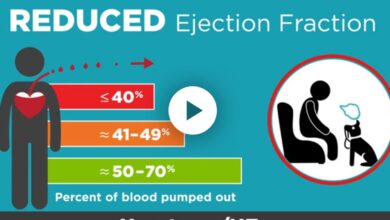ATRIAL FIBRILLATION: Does it affect Length of life?

That question and several others were answered recently by information reported in a study reported in the British Medical Journal (BMJ). The authors set out to learn if Atrial Fibrillation (AF) was as “deadly” now as it was 48 years ago. What they found disturbed me.
I’ve always had the impression that AF, by itself, is not a fatal arrhythmia. Unlike Ventricular tachycardia (VT) and Ventricular Fibrillation (VF), which directly cause death, AF does not correlate one-to-one with end of life. In other words, something else that results from having AF is usually the cause of death, ie. stroke, heart failure, chronic lung disease. These conditions can occur when AF is treated inadequately or the patient is not prescribed blood thinners.
For the past fifty years, the residents of Framingham, Massachusetts have been the focus of an ongoing study of lifestyle habits and how they affect health outcomes. Called the Framingham Heart study, the residents participating in it have provided reams of information to researchers. Cardiovascular disease and anything that contributes to it has been its primary focus, but it has given valuable information on the roles of cholesterol, smoking, hypertension, and lifestyle in regard to CVD. The authors of this study had ready-made data they could extract for the purposes of their investigation.
They investigated data from patients during 3 time periods:
Group 1 1972-1985 5671 patients
Group 2 1986-2000 6177 patients
Group 3 2001-2015 6174 patients
Patients were separated into two sub-groups: Those without AF, Those with AF
Researchers wanted to learn if there was a difference in death rates over the 48-year period.
What did they learn?
- Patients who had AF for 10 years or more were compared to similar patients without AF:
A. Group 1: patients without AF lived 2.9 years longer than those with AF
B. Group 2: patients without AF lived 2.1 years longer than those with AF
C. Group 3: patients without AF lived 2.0 years longer than those with AF
AFib patients now are living longer than in past years.
2. “More than 10 years after diagnosis of atrial fibrillation, individuals with A Fib lose about two
years of life compared to matched (individuals).”
Conclusion: Over the past 45+ years, patients with atrial fib have gradually lived longer, but AF shortens life by two years. Atrial fibrillation is definitely “less deadly” than it was 20, 30, 40, or 50 years ago. But having Atrial Fibrillation has a negative affect on the length of life of patients who have it.
Dr. G’s Opinion: It benefits us not to have atrial fib. The effectiveness of AF treatments has improved over the past fifty years. The aggressive, unimpeded use of anticoagulants for stroke prevention and the liberal performance of radio frequency ablation procedures have both served to improve quality of life and longevity and are probably responsible for the positive results obtained by these researchers. But just having AFib means there is something wrong with your heart. Your heart is not normal, and that abnormality is destined to take its toll on an individual and shorten his or her life. According to this study, that is two years shorter.
That does concern me being one who has had AF for 15 years. I’ve already lived at least 20 years longer than I expected, and my extended life has been good. Losing two years won’t really bother me because I’ve already had many bonus years I never expected to have.
References: https://www.docwirenews.com/condition-Center/atrial-fibrillation.
Vinter N, Huang Q, et al. Trends in excess mortality associated with atrial fibrillation over 45 years (Framingham Heart Study): community based cohort study. BMJ 2020 Aug 11;370:2724.




